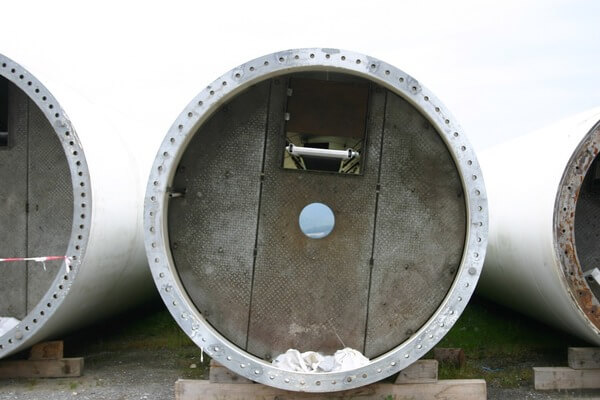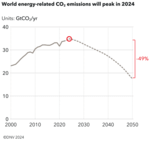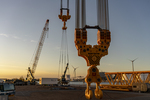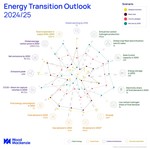News Release from windfair.net
Wind Industry Profile of
The Earth is off course
To still meet the goals of the Paris Agreement, CO2 emissions would have to be halved by 2030, but DNV predicts in its new 'Energy Transition Outlook' that this will not even be the case by 2050. In the current outlook, CO2 emissions will be only 4 per cent lower in 2030 and 46 per cent lower by mid-century than today. Meanwhile, energy-related CO2 emissions continue to reach record levels. As things stand, they will probably not peak until 2024 - the point at which the global energy transition really begins.
"Globally, the energy transition has not started, if, by transition, we mean that clean energy replaces fossil energy in absolute terms,” explains Remi Eriksen, Group President and CEO of DNV. “Clearly, the energy transition has begun at a sector, national, and community level, but globally, record emissions from fossil energy are on course to move even higher next year."
The still too slow expansion of renewable energies is proving to be a major problem. As a recent study by the WWF has just shown, the European Union, which has set itself the goal of becoming the first green continent, is still far from its target in the expansion of onshore and offshore wind power. According to the report, only 16 gigawatts of wind power capacity were added in 2022 - but to reach the target of 42.5 percent renewable energy by 2030, the annual increase would have to at least double.
The 42.5 percent renewable energy by 2030 is actually already too little, but it is the only target on which the EU states could still agree. In view of the urgency of the climate crisis, the target of 50 percent should have been set for 2030 instead. A fatal development, as the WWF finds. "We need much more tailwind for the expansion of renewables, especially in the actual implementation of expansion targets. Currently, the construction of new plants is delayed because, for example, there is not enough land available, approval processes take too long or there are still problems in the supply chain. The specifications within the framework of the EU Renewable Energy Directive will be decisive," emphasises Viviane Raddatz, Climate Director at WWF Germany.

Despite record levels, the expansion of wind energy in Germany is still far below the targets (Image: Pixabay)
Yet it is not as if the global community is not making an effort. Currently, more renewable capacity is being added than ever before: Solar installations hit a new record of 250 GW last year, while wind energy will still supply 7 per cent of the world's electricity connected to the grid. This capacity is expected to double by 2030, even though supply bottlenecks, inflation and problems with transmission networks are currently holding back expansion, according to DNV.
One of the keys is the level of investment. Worldwide, too much money is still being invested in the expansion of fossil capacities. The example of Germany makes the problem clear: in 2022, only 17 billion euros were invested in the construction of new wind farms - only a quarter of what is spent on climate-damaging subsidies in Germany alone. This means that the quite ambitious expansion targets for 2030 cannot be achieved.
DNV also comes to this conclusion. " Ahead of COP 28, DNV will publish its ‘Pathway to Net Zero’ report, showing that technology is not the main challenge, but rather the incentives to drive fast deployment of renewables & storage and dis-incentives to drive down emissions from fossil fuel are lacking," adds Eriksen.
Nevertheless, the long-term trend is upwards, meaning that the world energy system will move from an energy mix that is 80% fossil fuels to one that is about 50% non-fossil fuels within a generation. "This is fast, but not fast enough to meet the Paris goals." A bleak outlook.
- Author:
- Katrin Radtke
- Email:
- press@windfair.net
- Keywords:
- outlook, DNV, WWF, Germany, CO2, emissions, wind farm, energy transition, forecast, investment, fossil fuels, energy

























